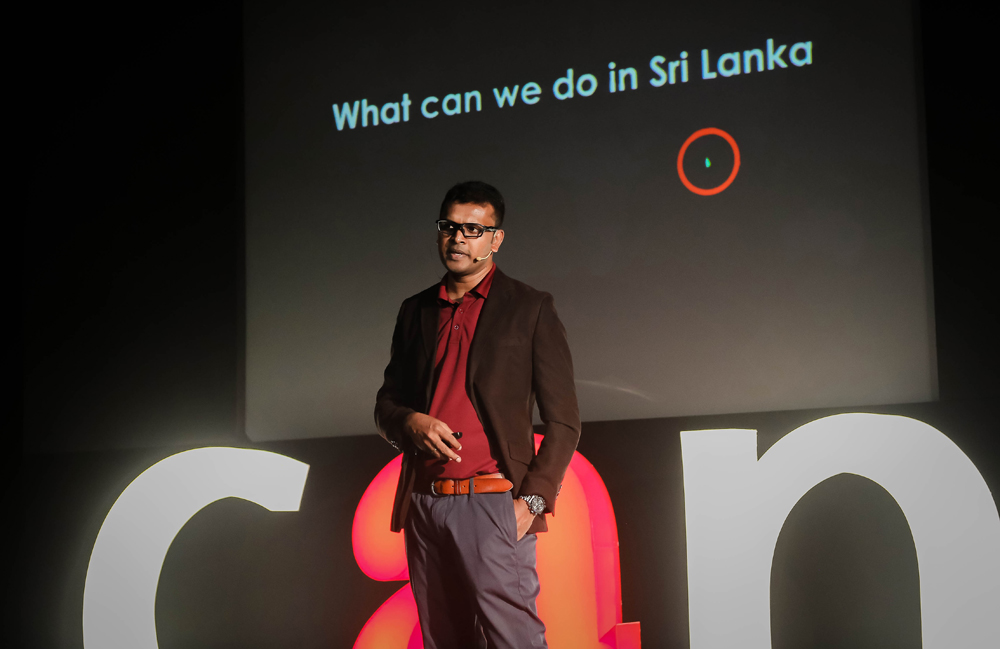September, 10, 2019

The head of Augmented Human Lab and Associate Professor at Auckland Bioengineering Institute, Prof. Suranga Nanayakkara, believes that a strong visionary leadership is vital to achieve long-term success.
“Stayed in Singapore for 20 years, seen how the country has been developing I think all what is needed is a strong leadership and then we rally around, put all our efforts, elevate the whole country into the next level,” Nanayakkara said whilst delivering his speech during a seminar titled “innovation: think outside the computer box” organized by the Sri Lanka can foundation in Colombo today (10).
“Technology changes so fast but vision last for years. So you should always have a vision. When you are working on something you should always take a step back and ask yourself why I’m doing this? What is the bigger thing I’m trying to achieve? Then you can move forward,” Nanayakkara added.
Suranga Nanayakkara is a Sri Lankan with 12 patents and 70 publications in his name.
Currently, he resides in New Zealand on the invitation of the New Zealand government which offered him a grant of 10 million dollars to set up and innovation lab.
Suranga read for a Bsc in electrical and computer Engineering and a PhD in engineering at the national university of Singapore, both as a scholarship holder. Thereafter he served as a postdoctoral associate at the Massachusetts institute of technology in the United States. He is a proud product of Royal college of Colombo.
Suranga is best known for his work EyeRing - A finger-worn interface for seamless interactions, Haptic Chair - Audio visual system to provide a more satisfying musical experience to deaf people and StickEars – a sound-based sticky note like device to make everyday objects more accessible.
Suranga is among that rare breed of engineers that has a sense of “humanity” in technology.
His work is most important to the people whose lives it most directly impacts: those who face challenged to function in the world due to sensory deficits in hearing or vision. What also makes Suranga’s contributions important is that they are not only applicable to those specific communities. Because of his emphasis on “enabling” rather than “fixing,” the technologies that Suranga has developed have a potentially much broader range of applications.
With publications in prestigious conferences, demonstrations, patents, media coverage and real-world deployments, Suranga has demonstrated the potential of advancing the state-of-the-art in Assistive Human Computer Interfaces.
Video Story